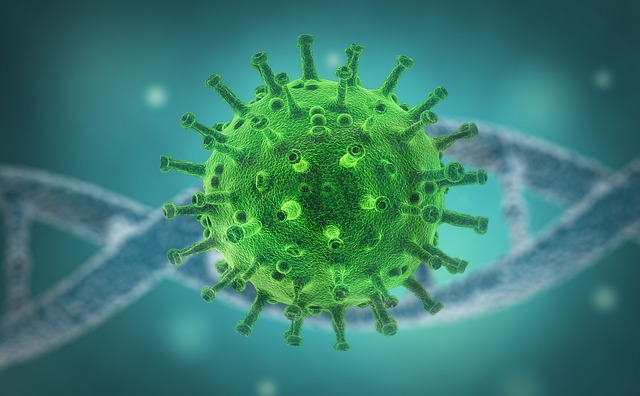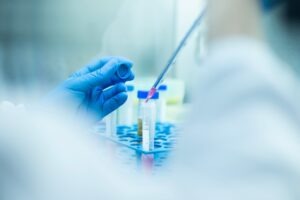Lineage Cell Therapeutics, a clinical-stage biotechnology company developing novel cell therapies for unmet medical needs, announced that it has applied for grant funding from the California Institute for Regenerative Medicine (CIRM) to support the use of VAC, Lineage’s allogeneic dendritic cell therapy, toward the development of a potential vaccine against SARS-CoV-2, the virus which causes COVID-19.

Lineage Cell Therapeutics is set to apply allogeneic dendritic cell therapy programme to Covid-19 vaccine development. (Credit: PIRO4D from Pixabay)
Subscribe to our email newsletter
In response to the COVID-19 pandemic, CIRM recently approved emergency funding and the allocation of $5 million for peer-reviewed regenerative medicine and stem cell research that could quickly advance treatments for COVID-19. The funding would be awarded as part of an expedited approval process.
“Several lines of clinical evidence encouraged us to apply the use of the VAC technology to the development of a prophylactic vaccine against SARS-CoV-2 and other coronaviruses,” stated Brian M. Culley, Lineage CEO.
“Recent publications have reported that patients infected with coronaviruses can exhibit modest neutralizing antibody titers and diminished T cell responses, suggesting it may be difficult for traditional vaccine approaches to generate long-term protection via the cellular immune response. Our belief is that dendritic cells, the body’s most potent antigen-presenting cell, can present viral antigens to the immune system to prime a robust immunological memory and provide durable, multi-year protection against the severe consequences of infection. This would be especially beneficial for front-line healthcare workers and others at risk of repeated exposure. Clinical data in patients with various cancers collected by Duke University Medical Center in early clinical trials of VAC1, the first product candidate from the VAC platform, showed nearly all patients developed evidence of antigen-specific T cell immune responses. This signal was confirmed in a majority of patients enrolled in a subsequent phase 2 study of VAC1 reported in 2016 by Asterias Biotherapeutics, which Lineage acquired in 2019. We believe these and additional data provide validation of the underlying mechanism of using dendritic cells to present antigens to the body’s immune system. We believe we are unique among cell therapy companies that are evaluating solutions to the COVID-19 pandemic because we are not focused on late-stage critical care, but on providing long-term prophylactic protection against infection, which may help reduce the need for hospitalization and address a critical gap among the critical care and humoral immunity approaches currently in development. The ideal scenario is that protection against COVID-19 in high-risk individuals would become durable, similar to measles or pertussis, rather than influenza, which requires an annual vaccination.”
Mr. Culley continued, “Presenting a viral antigen by means of our allogeneic dendritic cell platform will require manufacturing process development and creating a new expression construct prior to submitting an Investigational New Drug (IND) application to enable clinical evaluation. This will entail a modest investment of capital, but we feel that we are able to manage this new program alongside our existing programs in dry AMD and spinal cord injury. We recently raised $3.8M of cash from the sale of OncoCyte shares and this capital, alongside the translational research grant application submitted to CIRM, should it be approved, will help support our work in this area. We also intend to seek additional opportunities to obtain non-dilutive backing for this program.”
VAC is an allogeneic, or non-patient specific, product candidate platform designed to stimulate patient immune responses to antigens commonly expressed in cancerous cells but not in normal adult cells. VAC product candidates are produced from a pluripotent cell line using a directed differentiation method and are comprised of a population of nonproliferating mature dendritic cells. As the most potent type of antigen presenting cell in the body, dendritic cells instruct our body’s immune system to attack and eliminate harmful pathogens and unwanted cells. Because the antigen is loaded exogenously into the dendritic cells prior to administration, VAC is a platform technology that can be modified to carry any antigen, including patient-specific tumor neo-antigens or viral antigens. An earlier VAC program, called VAC1, was comprised of autologous dendritic cells and provided proof-of-concept for VAC2, an allogeneic product candidate.
With $3 billion in funding and approximately 300 active stem cell programs in its portfolio, CIRM is the world’s largest institution dedicated to helping people by bringing the future of cellular medicine closer to reality. In response to the crisis caused by the COVID-19 virus, CIRM recently approved emergency funding and the allocation of $5 million for peer-reviewed regenerative medicine and stem cell research that could quickly advance treatments for COVID-19. The funding would be awarded as part of an expedited approval process.
Source: Company Press Release
 Advertise With UsAdvertise on our extensive network of industry websites and newsletters.
Advertise With UsAdvertise on our extensive network of industry websites and newsletters.
 Get the PBR newsletterSign up to our free email to get all the latest PBR
news.
Get the PBR newsletterSign up to our free email to get all the latest PBR
news.

